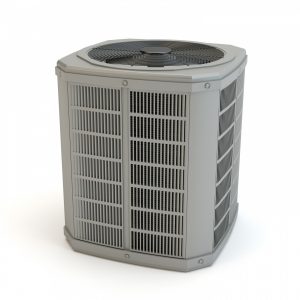Living in Florida means having an air conditioning system running for long stretches during the summer. You’re probably used to how long your AC runs at a time without giving it much thought. It turns on, runs for fifteen to twenty minutes, maybe longer, then cycles down until your house starts to heat up past the setting on the thermostat.
If you notice that the AC is turning on and off much faster more frequently, maybe running for only five minutes at a time and then coming back on soon after, you might think there’s a problem. You’re right: you’ve got a short-cycling air conditioning system, and this usually calls for air conditioning repair in Tallahassee, FL from professionals.
What Is Short Cycling?
Short-cycling describes a situation where an air conditioner turns on and off too frequently without completing a full cooling cycle. When an AC unit short-cycles, it might run for only a few minutes before shutting off, only to restart shortly afterward. This erratic operation not only fails to properly cool your home but can also indicate underlying issues within the system.
Short-cycling is more than just a minor inconvenience—it can lead to several significant issues that affect your comfort, energy bills, and the overall health of your AC system:
- Increased Wear and Tear: Frequent starting and stopping puts extra stress on the AC’s components, particularly the compressor. This can lead to premature failure and require expensive repairs or even a complete system replacement.
- Higher Energy Costs: The start-up phase of an AC cycle uses the most energy. By continuously starting and stopping, an AC consumes more electricity than necessary, resulting in higher bills.
- Inadequate Cooling: Since the AC doesn’t run long enough to complete a full cycle, it cannot properly maintain a consistent temperature, resulting in poor comfort.
The Possible Causes of Short-Cycling
There are a range of possible causes of short-cycling, many of which are major malfunctions:
- Incorrectly Sized Unit: One of the most common causes of short-cycling is an air conditioner that is too large for the space it is cooling. An oversized unit will cool the area too quickly and shut off before completing a full cycle, only to restart again as the temperature rises.
- Thermostat Issues: A malfunctioning or improperly placed thermostat can cause short-cycling.
- Low Refrigerant Levels: Low refrigerant levels can cause the evaporator coil to freeze, leading to short-cycling. Low refrigerant levels usually indicate a leak in the system, which requires professional repair.
- Clogged Air Filters: Dirty or clogged air filters restrict airflow, causing the system to overheat and shut down prematurely. Regularly changing or cleaning the air filters can help prevent this issue.
- Electrical Problems: Faulty wiring, corroded connections, or other electrical issues can lead to intermittent power supply to the AC unit, causing it to short-cycle. An electrician or HVAC professional should inspect and repair any electrical faults.
Call HVAC Professionals for Repairs
While you can perform some preventive measures, such as regular air filter changes, a short-cycling AC will often require that you call professionals to fix it. We recommend you call our technicians promptly when you notice the problem—you’ll save money and future troubles with your AC.

